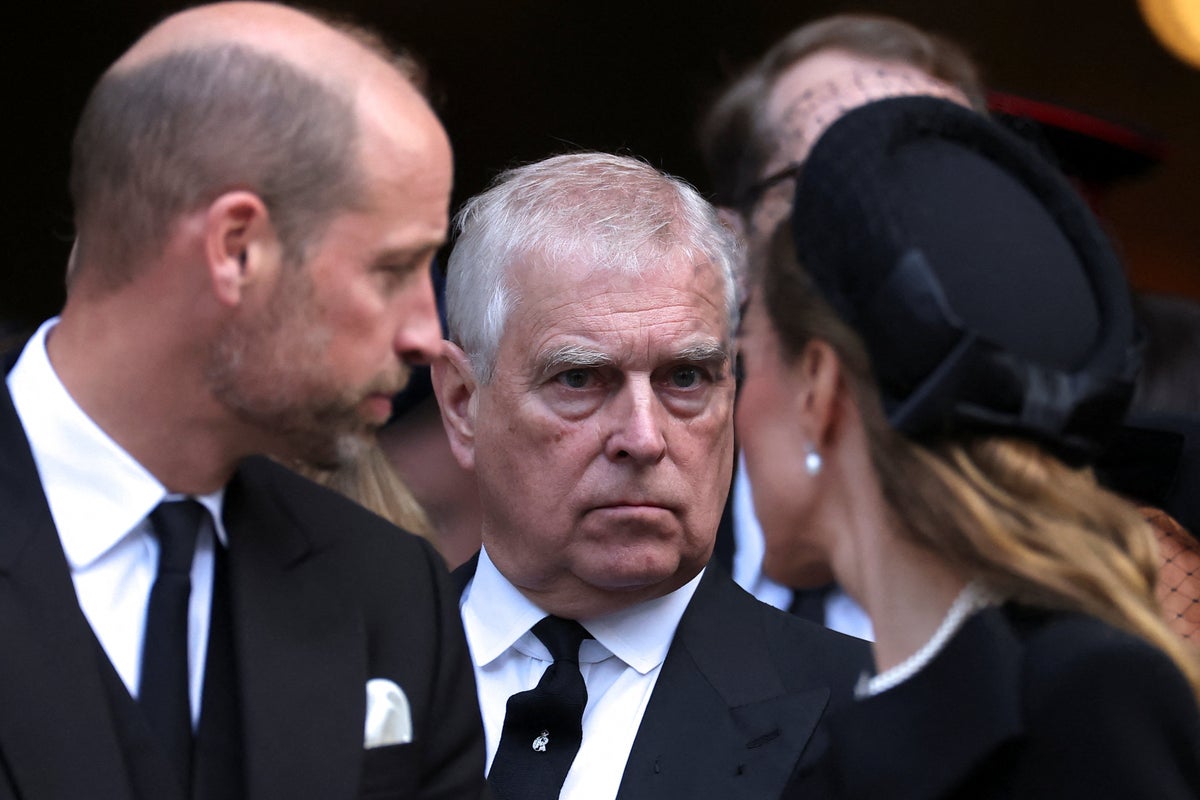
In the light of the revelations that keep on coming – and will surely continue, following Tuesday’s posthumous publication of Virginia Giuffre’s memoir – Prince Andrew’s decision to relinquish his royal titles has to be a case of better late than never. However long it has taken and however heavy a hand may have been applied by the King, it is nonetheless far preferable that this most comprehensive sanction on the prince to date should carry at least the veneer of voluntary acceptance rather than being imposed through parliament.
This government, indeed any government, has enough to do without devoting parliamentary time to issues the royal family should be capable of dealing with itself. If there is any substance, on the other hand, to reports that Andrew asked his close protection officer to investigate Giuffre’s background – one of the latest accusations to see the light of day – that should be a matter for the authorities. So it is right that the Metropolitan Police is looking into the claim.
As for whether the removal of Andrew’s titles is sufficient, many say not – given the still mounting evidence that he lied about the extent and duration of his ties with Jeffrey Epstein, and his continuing failure to show any contrition, still less sympathy for the girls and young women, including Giuffre, who were trafficked for the pleasure of Epstein and his associates. Propriety might demand that the prince and the now ex-Duchess of York should leave their palatial accommodations in Royal Lodge for somewhere more modest (and remote from the Windsor orbit). But Andrew has a long lease on the residence, and propriety is not something readily associated with the prince.
Another demand from some is that his status as prince should be added to the extensive list of titles he has lost. But this is a birthright that cannot so easily be taken away. It should rather be noted perhaps that continental Europe is awash with those bearing aristocratic titles by virtue of birth, whose only significance in real life is as relics of a bygone age. With the loss of his titles and his effective banishment from the King’s court, something similar will apply to Andrew, who would be well advised to accelerate his descent into obscurity as other disgraced or dethroned royals before him.
To the extent that he remains in the headlines, however, there needs to be a sense of proportion. Andrew was never, and is very far from being, heir to the throne. In terms of the institution of the monarchy, whatever more may emerge about his relations with Giuffre and Epstein, the scandal is nothing of the order of the abdication crisis, or even the breakdown of the marriage of the then Prince of Wales and Princess Diana.
In the application of her famed discretion, Elizabeth II did much to restore and protect the authority of the institution at home and abroad. How much of an asset this remains should be evident from the enthusiasm expressed by Donald Trump and the way state visits – by the French and US presidents earlier this year and by the German president still to come – enhance the UK’s diplomacy.
This does not mean that the fallout from Andrew’s real and alleged misdeeds does no harm to the monarchy. The latest spate of allegations is already distracting attention from the truly historic event this week that will see the King and the Pope praying together in the Sistine Chapel – the first such coming together since the Reformation. It also has the effect of obscuring the good work done by other senior royals.
Distraction is one thing; the greater risk is that the institution as a whole is contaminated. Support for the monarchy in the UK is not what it was, especially among the younger generation, where a recent poll showed 42 per cent of 18 to 24-year-olds favouring an elected head of state. The positive news for royalists, however, must be the heavy hints being dropped by the heir to the throne, Prince William, that he understands, and intends to act on, the need for change.
William is reputed to have been in the forefront of the moves to banish his uncle over the Epstein affair, to the point of suggesting that he will not be invited to his coronation. As someone who may be presumed to have a better grasp of today’s sensibilities over sex trafficking and exploitation than many of his elders, William is said to have been impatient with the way accusations against Andrew were handled.
In many other ways – from his student years at St Andrews University, to his marriage to a “commoner” (how quaint that term now sounds), to the way he and Catherine have tried to give their children something akin to a normal life, as well as their support for such contemporary concerns as mental health, homelessness and the environment – it may be possible to detect the barest glimpses of a more Dutch- or Scandinavian-style monarchy to come.
The Waleses, of course, remain many moons away from the realities facing the average Briton, from their inherited wealth, to their multiple residences, to the choices about their children’s education. It would also be fair to credit Queen Elizabeth with starting to pare back the public face of the monarchy, a process that King Charles has continued, albeit perhaps more slowly than his successor would like. With hindsight, the past week may have shown the monarchy turning its back on an unacceptable face of the past, and rallying to William as the face of the future. It is a choice that for the time being will improve, but not necessarily guarantee, its chances of survival.






Follow